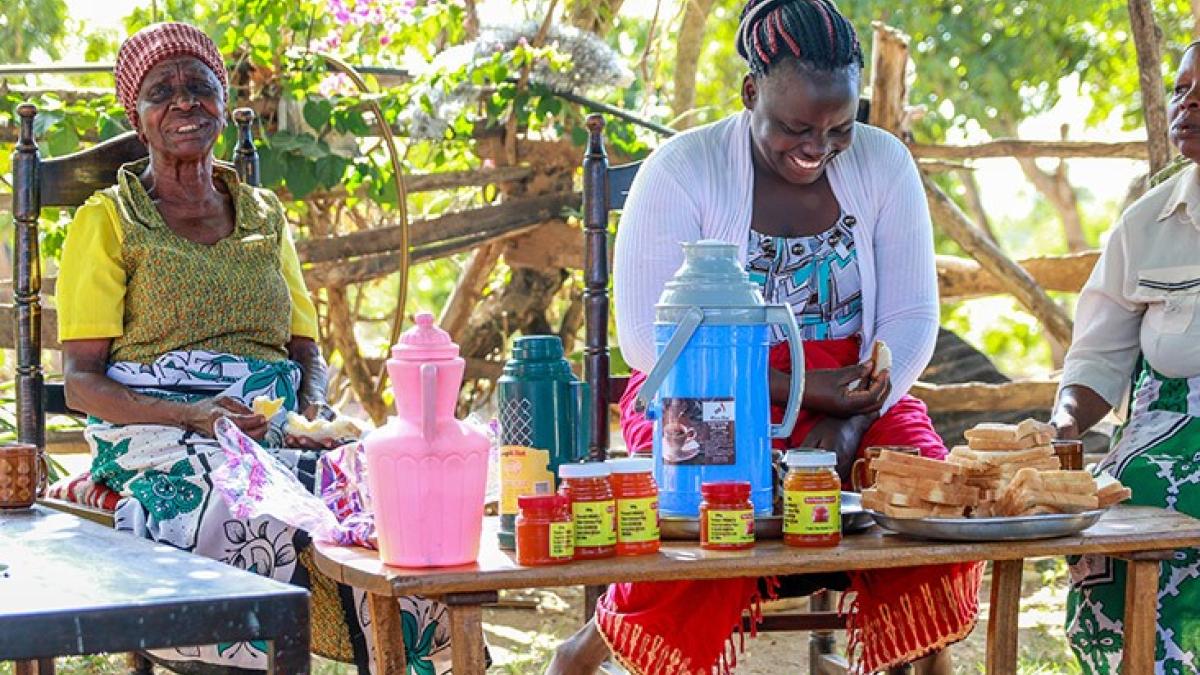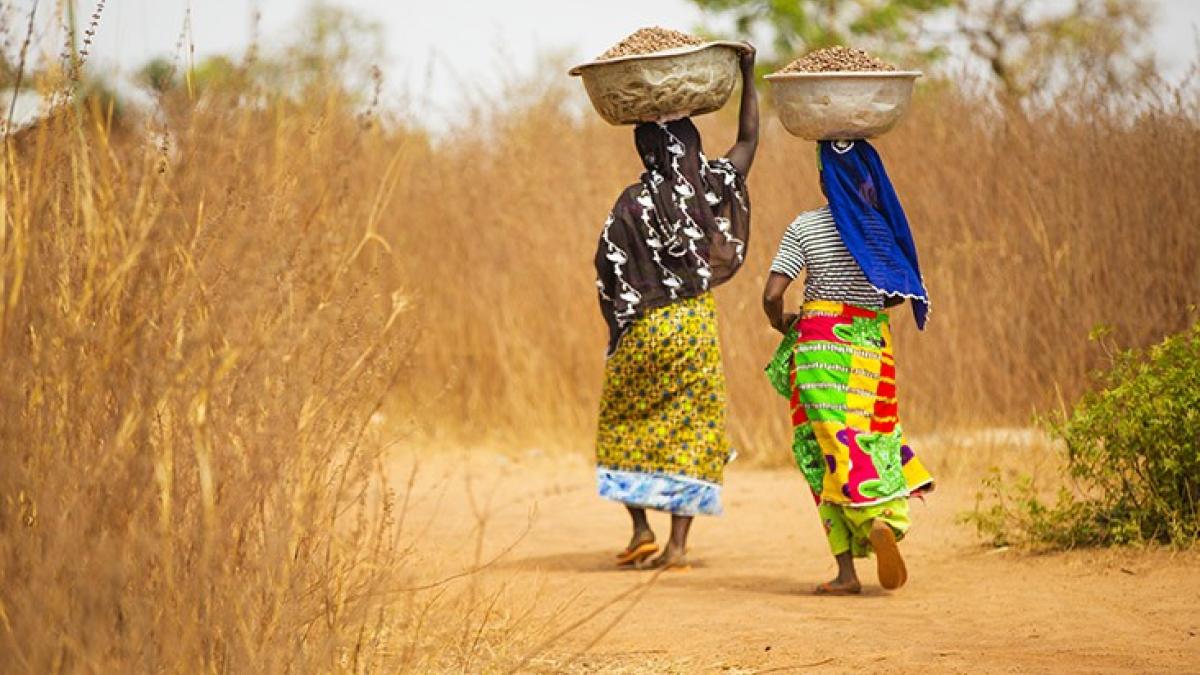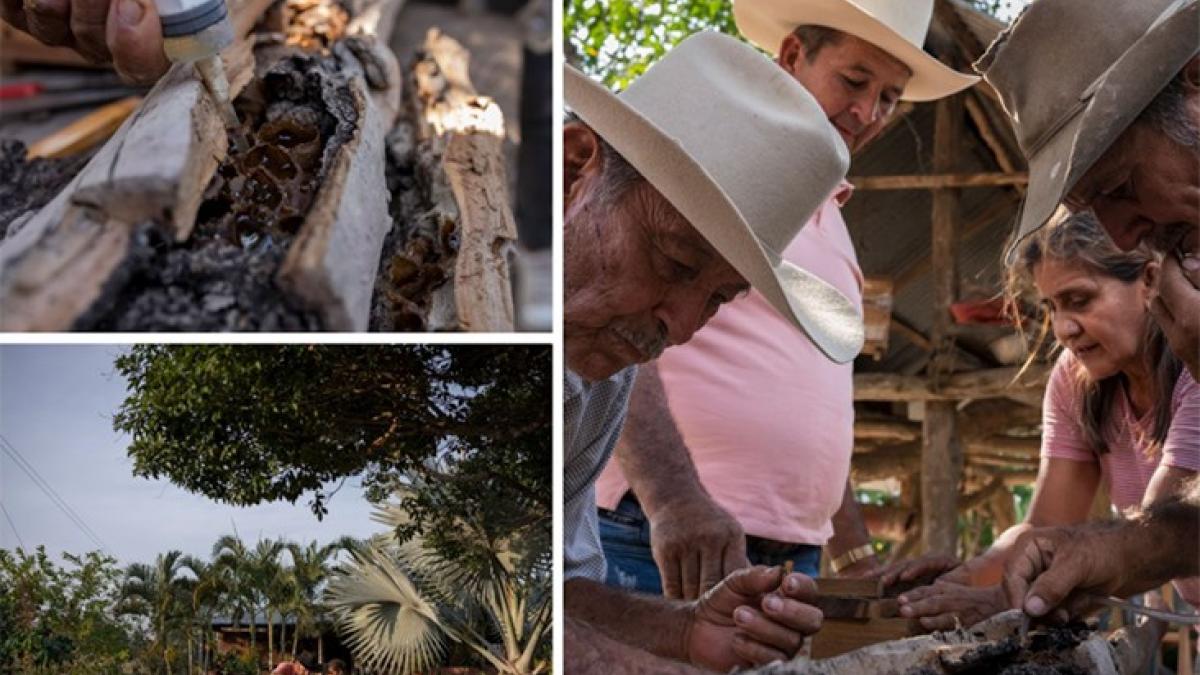
Susanna Jolly
Did you know that nearly 90 percent of flowering plants, including more than 75 percent of leading food crops, rely at least in part on animal pollinators to enable crop fertilization and reproduction? From sustaining natural ecosystems to providing nourishing food to income-generating opportunities, these small but mighty critters are not only vital to the integrity of our global food systems, but also make valuable contributions to our global economy.
During World Pollinator Week, we are celebrating the important role that pollinators play in contributing to USAID’s development goals, policies, and objectives, and how USAID programs support the cultivation of healthy environments in which pollinators can thrive.
What are pollinators?
As they go about their own lives, hunting for food or other resources, animal pollinators—including bees, birds, bats, beetles, butterflies, moths, flies, and wasps—transfer pollen among flowers enabling plant fertilization and reproduction. By providing this ‘service’, pollinators help produce most of the food we need to meet our dietary requirements, including fats and oils from sunflowers, canola, and oil palm, as well as critical vitamins, minerals, and protein found in fruits, vegetables, and legumes.
But that is not all that they do! Given that approximately 80 percent of the plant species on Earth are flowering plants, and 90 percent of those require animal-mediated pollination, many of the plants we depend on for behind-the-scenes ‘services’ that ecosystems provide, such as carbon cycling and sequestration, water filtration, biological pest control, and temperature regulation, would cease to exist without pollinators. So it is not an exaggeration to say that humanity depends on pollinators for our survival as a species.
Yet, pollinators, both managed and wild, are in decline globally due to land use changes, intensive agriculture and pesticide use, pollution, invasive species, pathogens, and climate change. These threats to pollinators accelerate biodiversity loss, exacerbate negative impacts on communities from a changing climate, and increase food insecurity at a time of unprecedented global food shortages.
Why are Pollinators Important for Development?
Given the central role pollinators play across landscapes—from forests and deserts to farms and cities—their survival is essential to meeting USAID’s development goals, policies, and objectives; these include the U.S. Government’s Global Food Security Strategy, a whole-of-government approach that aims to end global hunger, poverty, and malnutrition, USAID’s Biodiversity Policy, which seeks to conserve biodiversity in priority places and integrate biodiversity as an essential component of human development, and the recently launched USAID Climate Strategy 2022-2030, a whole-of-Agency approach to reduce global greenhouse gas emissions, help partner countries build resilience to climate change, and improve our operations.
By conserving pollinators and improving the broader environmental conditions for their habitats, USAID helps to advance global food security and nutrition, strengthen the resilience of people and systems that undergird the global economy, and foster conservation enterprises and other examples of inclusive and sustainable economic growth.
Pollinators and Food Security
With nearly 800 million people suffering from chronic hunger and two billion experiencing micronutrient deficiency, protecting pollinators is critical for global food security and creating a higher yielding, nutritious, and resilient global food system.
In Cambodia, where households have the least diversified diet in all of Southeast Asia, there is an increasing need to diversify farming systems and improve farm profitability. To tackle this issue, USAID and Feed the Future are introducing wild and home gardens that provide a multitude of benefits. They contribute to nutritional diversity and food security, offer income-generating opportunities, and perhaps most importantly, attract wild pollinators, which thrive off of the diversity of wild plants. Conserving pollinators can strengthen food security and nutrition investments while improving broader environmental conditions.

of Agriculture and Technology to solve food security challenges.
Jua Kali Operators
Pollinators and Global Agricultural Systems
Pollinators both actively and passively contribute to agricultural systems through both managed honey bees and unmanaged wild pollinators, underpinning key agricultural value chains in developing countries, including in the coffee, cocoa, and fruit industries. Given their importance for agriculture production, wild pollinator conservation is increasingly incorporated into agricultural activities to benefit both people and nature.
USAID supports a number of programs to improve the ecological sustainability of agriculture production, including for one of the world’s most traded global commodities: coffee. Responsible for 1.7 million American jobs and an estimated $225 billion GDP in the United States alone, the coffee industry is almost entirely dependent on overseas coffee production from low to lower middle income countries; the industry also serves as a critical source of income for some 12.5 million people in developing countries. But global coffee crops are on the wane, threatened by the decline in pollinators and climate change, among other threats. By working to make the coffee supply chain more sustainable while reducing deforestation pressures and expanding forest conservation and restoration, USAID is helping to reduce threats to pollinators.
Pollinators and Conserving Landscapes
In West Africa, the rapidly expanding shea industry—which relies on wild pollinators—employs some 16 million rural women. Demand for shea, an important ingredient in food and cosmetic products worldwide, has grown exponentially in the last 20 years. In 2020, the USAID-supported Global Shea Alliance launched the Action for Shea Parklands initiative aimed at planting ten million shea trees in ten years—a response to the continuous destruction of shea parklands. The shea tree will conserve biodiversity, support climate mitigation efforts, and create habitat for pollinators, improving shea fruit production and helping to secure the future of this important ecological, societal, and economic resource for the region.

Douglas Gritzmacher
Pollinators and Improved Livelihoods
In addition to ensuring the survival of flowering plants, pollinators are a vital source of income for many rural livelihoods, with beekeeping and the sale of honey proving to be a sustainable alternative to environmentally-destructive income-generating opportunities such as charcoal production and the wild meat trade.

Susanna Jolly
In Tanzania, participation in the Women’s Beekeeping Initiative, a USAID-supported effort through partner organization Tanzania People and Wildlife, has earned some women in the nomadic Maasai tribe financial independence and greater decision-making power in their communities. As an enterprise that supports the community, conserves local ecosystems, and builds gender equality, beekeeping is a perfect solution for women in many communities to increase their independence and their resilience in the face of increasing shocks, uncertainties, and inequities due to climate change and other threats.
Like other conservation enterprises, beekeeping also helps shift attitudes towards local habitats and wildlife, discouraging harmful practices that contribute to biodiversity loss. “Beekeeping has changed our lives…it is a good source of income for my family and I,” says Totobe, a beekeeper in Madagascar who has been trained in the art of beekeeping through the USAID Mikajy environment project. For Totobe and his community, the benefits of beekeeping have been twofold: it has generated new economic opportunities and taught them the important role bees play in maintaining Madagascar’s unique biodiversity.
Today, like other pollinators, bee populations are in decline, which has a direct impact on ecosystem health and food production. As a result, farmers need to artificially pollinate their crops, which increases production costs and food prices. To address this, USAID/Colombia’s Natural Wealth Program works to conserve natural ecosystems and sustainable agricultural production by promoting a pollinator conservation initiative in the flooded savannas of Colombia. Local communities recover and raise native stingless bees, restore natural areas, and produce honey with biodiversity conservation criteria. Furthermore, these communities established the first regional network of stingless bee honey producers to conserve bees from external threats (agrochemical aerosols), identify and negotiate commercial honey opportunities with a premium price for biodiversity conservation, and share knowledge on honey production.

flooded savannas in the Orinoquía region in Colombia.
Hanz Rippe
Conclusion
The vital contributions that pollinators make to many different USAID sectors— advancing food security and nutrition, protecting biodiverse landscapes that mitigate climate change and provide habitat, and improving livelihoods for millions around the world—underscores the need for all of us to pay close attention to the needs of these small creatures and strongly consider the role they play in our tightly interconnected world—our very survival depends on it.

helped establish alternative livelihoods such as bee keeping.
Sandra Coburn
About The Authors
Katie Koerper is a biodiversity communications consultant supporting USAID’s Sharing Environment and Energy Knowledge project.
Dr. Kate Gallagher is a pollination ecologist serving as an American Association for the Advancement of Science (AAAS) Science and Technology Policy Fellow in USAID’s Center for Environment, Energy, and Infrastructure in the Bureau of Democracy, Development, and Innovation. She leads the implementation of the Agency’s Environmental and Natural Resource Management (ENRM) Framework.
